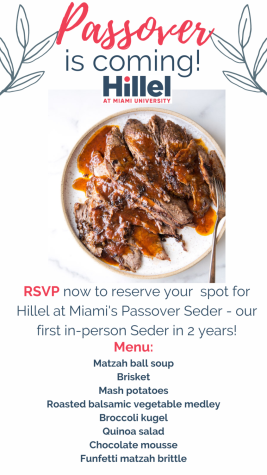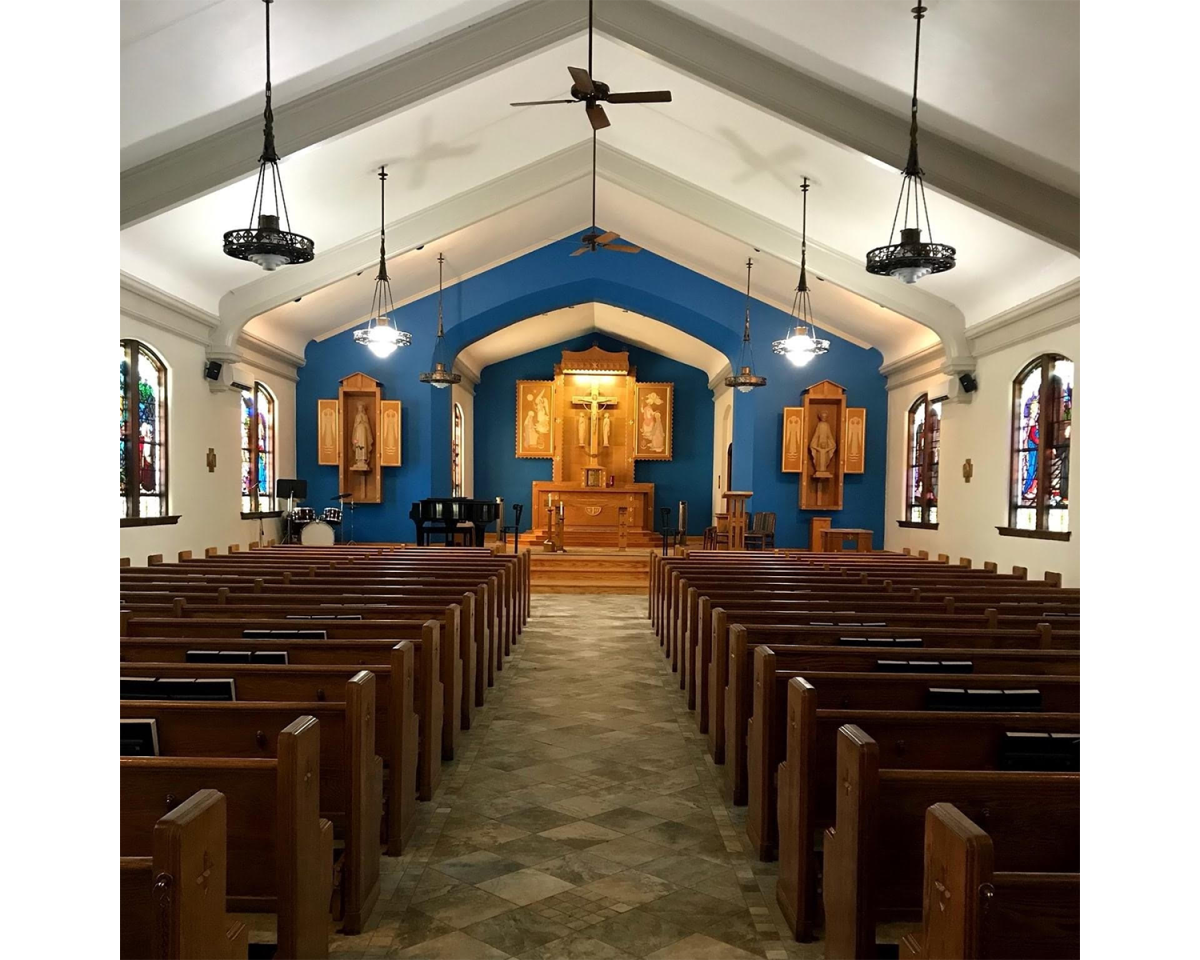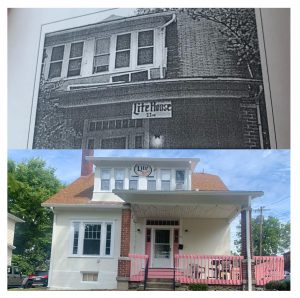Weekend celebrates two holidays: Easter and Passover
Photo courtesy of St. Mary Church
The sanctuary of St. Mary Church in Oxford, which will be filled on Easter morning.
April 15, 2022
Religious holidays tend to vary in how they line up with each other, but this year Passover falls right in line with Good Friday, running from Friday evening to Saturday evening, followed by Easter this Sunday.
Due to the COVID-19 pandemic shutting down large group gatherings, this is the first time in two years that Miami University’s Hillel is going to have an in-person Passover Seder. They are also planning different activities throughout the week of Passover such as lunches, baking and an escape room.
“We try to be as pluralistic as we can,” Katie Spector, Hillel’s engagement director, said. “That means trying to do as many events for as many people as we can and making our building open for all students.”
Passover is one of the Jewish religion’s most important holidays, as it celebrates the Israelites’ escape from slavery in Egypt. Matzo — unleavened bread — is eaten for a week because it is said that the Israelites had no time to let their bread rise while fleeing the Egyptians.
Every single thing that happens during the seder and everything that is eaten has some kind of meaning to the story. For example, a person may find salt water on the table which is used to represent the tears the slaves shed.
“Passover is really the story of the Exodus of the Jewish people from Egypt and 40 years of wandering in the desert,” Spector said. “We have spent years of turmoil and injustice and still find that today. It’s about coming together, celebrating, standing up against those injustices and being thankful that we are together as a community.”
Easter celebrates Jesus’ resurrection. The timing of the holiday symbolizes new beginnings and rebirth as springtime usually brings new births in nature.
The Catholic Newman Center, St. Mary Parish’s branch for students, plans to have services for Good Friday and Easter Sunday. These services include uncovering the cross, singing and a vigil.
“Easter Sunday is very similar to our other masses on a normal Sunday,” Father Jacob Willig said. “It’s just more ‘Alleluias,’ more glory, more joy, singing and all that. It’s just a bigger celebration.”
Like Passover, many Easter activities have a connection to the importance of the holiday and what is being recognized. For example, the painting and decorating of eggs symbolizes Jesus’ resurrection, as the eggs — representing birth — were historically painted red, representing the blood from the death.
Passover and Easter don’t have too many similarities in what is celebrated, but both holidays traditionally include fun activities for the children.

Easter often includes an Easter egg hunt and photo opportunities with the Easter bunny. Passover includes a hide-and-seek game with a piece of Matzo called the Afikomen, as well as the reciting of the four questions that analyze why Passover is different from any other nights.
Hillel adds a question to these four questions during its seder. Because most of the participants are college students, the organization believes it is important to acknowledge Miami University’s land in order to make the activity more of a learning experience for an older group of participants.
“We are very privileged to be here,” Spector said. “We’ve added a fifth question catered around how we deal with injustice, and we are adding a social justice piece to our seder this year.”
Father Willig said that there is a beautiful fire and Easter candle lighting ceremony Saturday night. The service continues with the seven readings from Scripture.
“It’s this very beautiful symbol of God creating the world,” he said. “God coming into the darkness or for us to be the Gospel of John. It talks about Jesus being the light coming into the world, in the midst of our sins, to save us.”
Both spring holidays also promote family, community and togetherness. Miami alum Julie Whapham reminisced on her time being in St. Mary Parish’s choir during Easter.
“Being with my friends during this holiday and doing something that we all love,” she said. “Creating music together was definitely my favorite part, especially on a special day like Easter. That was really cool.”
It’s also said that in the 19th century, people started realizing that children are supposed to have fun and childhood is supposed to be filled with joy.
Whapham mentioned that even some of her friends participated in Easter egg hunts, especially if they had younger family members visiting for the weekend.
“My one friend would bring her little people in her family,” she said. “We put together little egg hunts for them and run around Anderson Hall.”
Both Hillel and The Newman Center plan to be as inclusive as they can as they celebrate their respective holidays. Hillel expressed that they are looking forward to filling their tables as well as using their staff to help explain what’s happening to those who may be confused.
The Newman Center has laminated sheets that follow the format of basic masses. These sheets include the responses to prayers so that a person who may be unfamiliar with the structure of services can follow along.
“I try to explain why we’re doing what we’re doing,” Father Willig said. “What are we remembering? What does it mean to wash people’s feet? A lot of it is going to be practical explaining.”
Because these two holidays often center around family, it can be hard for students to observe them, especially if they are unable to travel home.
Spector said that Hillel is offering free leftover Matzo for the Jewish students who need it, and the university dining halls will have “Kosher for Passover” options. Father Willig suggested using FaceTime and other forms of video chat as an alternative way to connect with family.
Whapham said that these holidays are a great opportunity to form connections with other people in the community, and she encourages people to take part in activities to do so.
“Get involved, get out there,” Whapham said. “You’ll probably run into someone you know or a friend of a friend. Meeting people always helps, so you’re never alone. That’s the whole thing with religion, right? We’re a community.”














